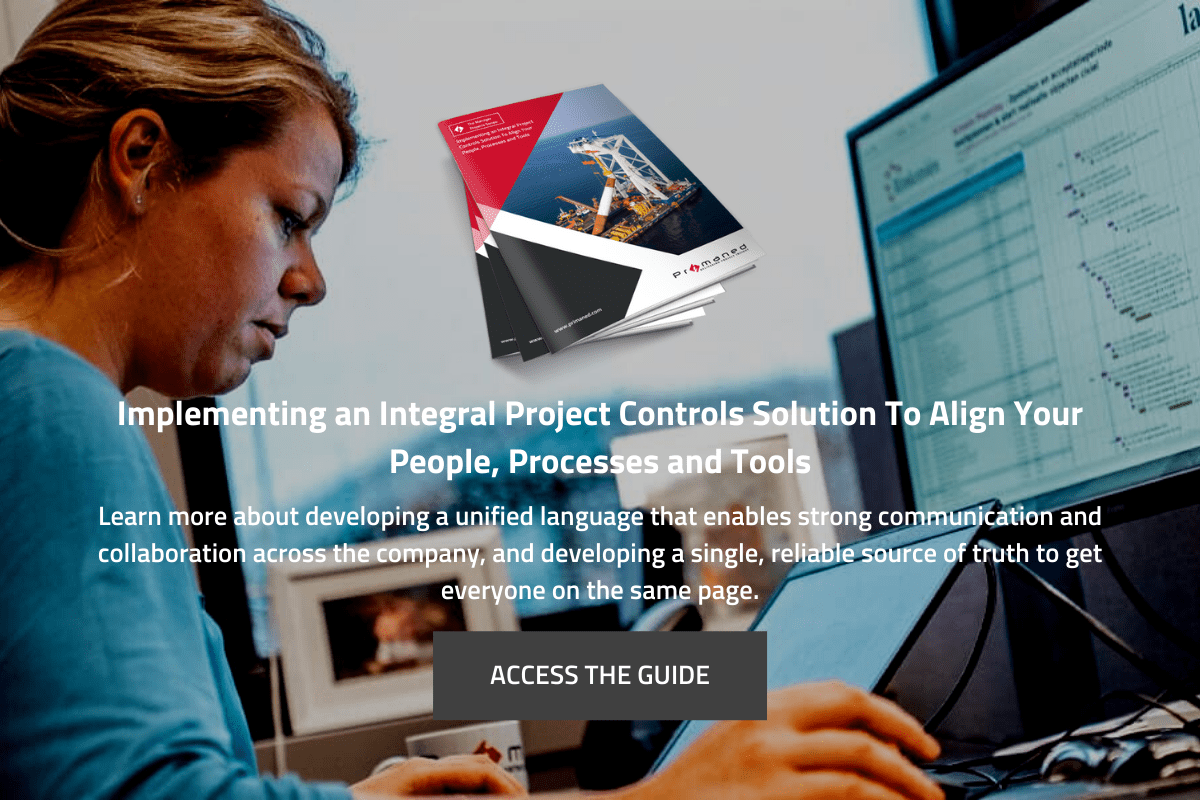5 Ways to Reduce Project Costs With Confidence Without Compromising on Vendor Quality With OPC
By Paul Vogels on Dec 30, 2021 11:00:00 AM

5 Ways to Reduce Project Costs With Confidence Without Compromising on Vendor Quality With OPC
Your role as manager is to successfully reduce project cost, guide, support, and motivate your team, empowering them to deliver projects on time, on budget, and to scope.
However, there’s one additional criteria that must always be met: Quality.
As you’ll already know, there’s increasing pressure coming from the board to not only deliver on time, within schedule and budget, but also to deliver unrivalled excellence. And as a results-oriented manager, you’re naturally keen to generate results that satisfy clients.
Your choice of vendor plays a big role in achieving this level of quality, and many managers are working hard to build a database of trusted, reliable vendors that they can be sure will help them to succeed in their mission. The problem, however, is that it’s becoming increasingly challenging to find trusted vendors that are both capable and affordable.
The Importance of Staying Within Budget
Research suggests that as many as half of all large construction projects experience delays which incur costs. Given that the average cost overrun for these projects lands somewhere between 10-15%, it’s clear to see just how critical it is to take proper measures to reduce project cost and project delay.
However, staying within budget isn’t just important for awarded contracts; it’s vital at the tendering stage, too. Estimations are a significant part of the decision making process - especially in this vulnerable and uncertain economy - and in many cases, the cheapest company will often be the preferred choice. There is mounting pressure on managers to reduce project costs greatly in a bid to secure new opportunities.
To remain competitive and reduce project costs to an attractive level, managers are feeling tempted to work with cheaper vendors, something which could put a quality delivery at risk.
The Risk of Cheap Vendors
Of course, you’d always prefer to work with the highest quality vendors that you can trust to deliver high quality work. But sometimes, it might feel as though there is no other option than to compromise on vendor quality in order to notably reduce project cost.
However, cheap vendors are cheap for a reason. There is statistically more likely to be risk involved in working with a cheaper vendor, which can increase the chance of mistakes and drive poor results, all of which your business will be held responsible for.
It’s important to remember that, today especially, vendors are under increased pressure just like you are. They are feeling the pressure to win more contracts, and as a result, may take on projects that are too big for them, or that they don’t have the time or resources to complete optimally. The result? Expensive penalties from your client.
There is a huge range of risk involved in working with cheaper vendors, including financial risk, operational risk, regulatory risk, and security risk. Is it really worth it?
The Project Management Institute says no. In fact, they state that ‘vendors may cost you more than your project’, believing that working with a bad vendor could significantly impact your reputation, your opportunities, and even your business.
Unfortunately, vendor-related problems are on the rise. In 2020, Deloitte’s Third Party Risk Management Global Survey found that 17% of businesses reported a ‘high impact’ risk incident due to a third party supplier; an increase of 6% from the previous year.
It is vital for managers to look for ways to confidently reduce project cost without compromising on vendor quality. And the good news is there are other ways to keep costs to a minimum and be able to stick to an optimal project management strategy without having to resort to working with the cheapest vendors.

A Modern Alternative to Reducing Project Cost
A different solution to reducing project costs is to work with higher quality, more costly vendors, but find a variety of alternative places where cost savings could be made. And that’s what Oracle Primavera Cloud specialises in: delivering more, for less.
Cost management functionality is built into the core of the OPC solution, helping teams to effectively manage end-to-end project costs, track outgoings, and take proactive measures to reduce unnecessary expenditure. There are a range of features, including budget capturing, forecast analyses, and expense projections that enable planning teams - and stakeholders from across all departments - to manage complex scenarios.
Here are 5 ways that OPC software can help to reduce project costs:
1. Optimise Time & Resources
Oracle Primavera Cloud’s comprehensive scheduling module makes it easier to allocate the right resources to the project - at the right time - to better optimise planning schedules and facilitate productivity to reduce the risk of costly overruns.
2. Maintain Control of Project Spends
Oracle Primavera Cloud enables teams to see - and better understand - project outgoings, putting them in control of associated spends and helping them to identify areas where outgoings could be minimised or even eradicated to reduce project costs.

3. Improve Risk Mitigation
Oracle Primavera Cloud’s integrated risk management module identifies potential risk early on in the planning process to enable interventions that reduce the need for costly fixes.
4. Monitor & Track Progress
Oracle Primavera Cloud boosts visibility of both project health and portfolio health, making it easier to track the progress of a project and monitor changes that could impact time and cost. Understanding cost changes is the key to reducing them.

5. Reduce Delays
Oracle Primavera Cloud offers a Monte Carlo simulation feature that enables planners to generate curves that highlight expected time and cost outcomes, along with the probability of achieving them. This can significantly help to reduce costly delays by developing a mitigation strategy.
Ultimately, while it is imperative that today’s planners are working to reduce project costs, it’s also essential that they understand that working with cheap vendors and subcontractors is not their only option. Identifying other areas for cost reductions through using project controls software like OPC can work to ensure that satisfactory outcomes are delivered on time, and within budget, without compromising on quality.
- OPC (15)
- Software (13)
- PC Boardroom (11)
- Academy (9)
- Consultancy (7)
- Manager Project Controls (7)
- IT / Procurement (5)
- Planning Engineer / Scheduler (5)
- Information Manager (4)
- Project/Assets Manager (4)
- Document Controller (3)
- Document Management (3)
- Oracle Aconex (3)
- Project Controls (3)
- BI & Data Analytics (2)
- C-level (2)
- Risk Manager (2)
- Scheduling Lead (2)
- Operational project staff (1)
- PMWeb (1)
- Resource Manager (1)
- Safran Risk (1)
Subscribe by email
You May Also Like
These Related Stories

Planning Principles: How to Increase Your Team’s and Organisations’ Understanding for Better Project Success With OPC
Planning Principles: How to Increase Your Team’s and Organisations’ Understanding for Better Project Success With OPC There’s a very common misconception amongs …

Planning Optimisation: How to Use Project Controls with OPC to Reduce Buffer Times and Increase Project Capacity
Planning Optimisation: How to Use Project Controls with OPC to Reduce Buffer Times and Increase Project Capacity For as long as you can remember, buffers have b …

The Manager Projects Series: How to Build an Oracle Primavera Cloud Implementation Business Case Your C-Suite Will Love
How to Build an Integral Project Controls Solution with Oracle Primavera Cloud Business Case Your C-Suite Will Love Before digging into Oracle Primavera Cloud, …


